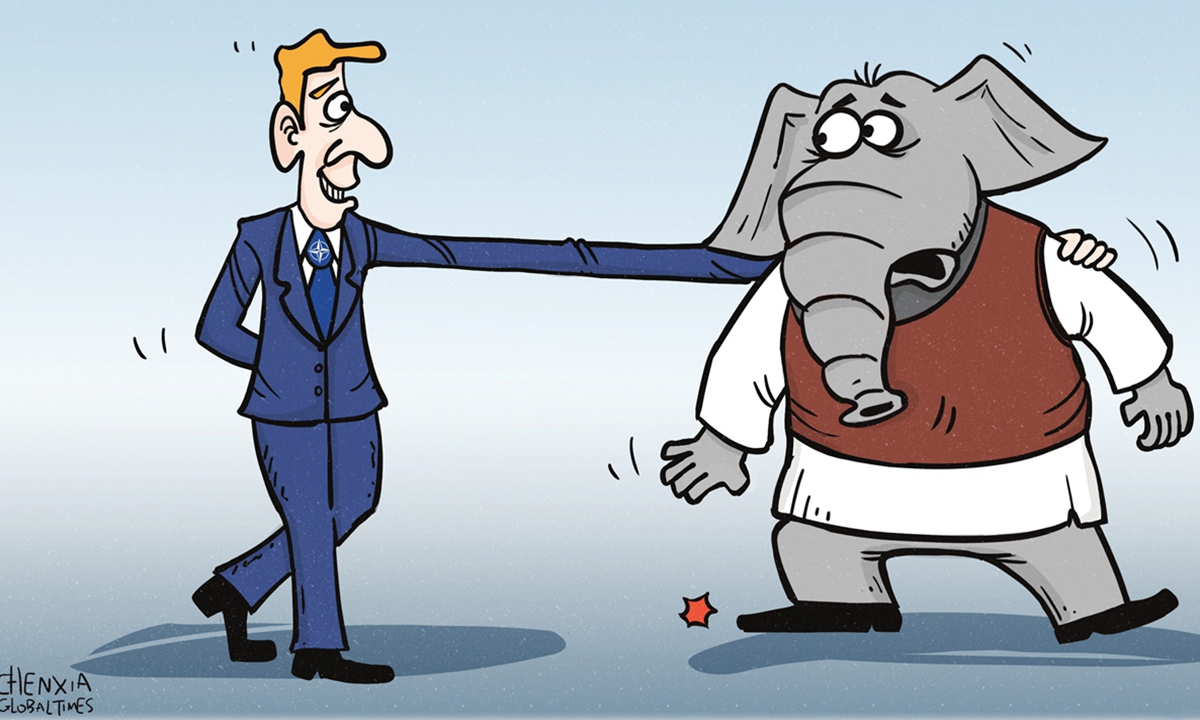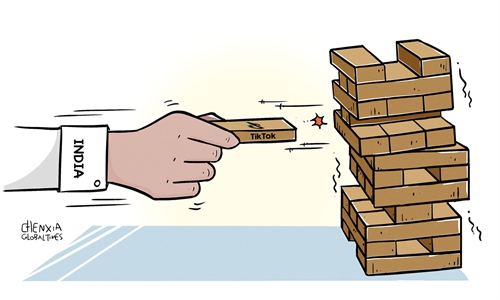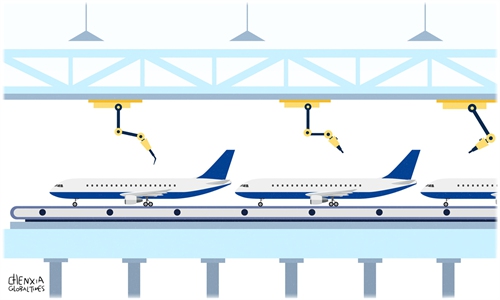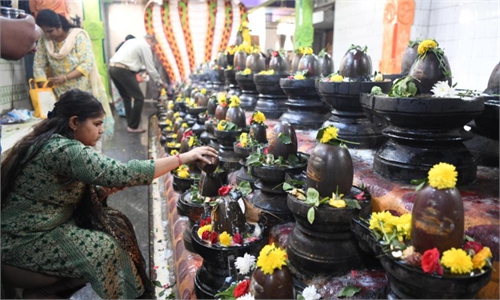
Illustration: Chen Xia/GT
Recently, there has been much controversy in India surrounding a BBC documentary known as "India: The Modi Question." The documentary is a critic of Prime Minister Narendra Modi's purported role in sectarian riots which struck the Indian state of Gujarat in 2002 between Muslims and Hindus, where more than 1000 people died. The program created outrage in India, which was denounced as "propaganda and anti-India garbage" that "reflects BBC's colonial mindset" by Kanchan Gupta, a minister in the information ministry. It was subsequently banned thereafter.Not long after, the BBC's offices in India were raided as part of a tax investigation by Indian authorities. The broadcaster responded by insinuating that the probe was politically motivated, and emphasized that the BBC is "independent" and "trusted." From a Chinese perspective, these developments feel very familiar, as the BBC has also actively interfered in the country's internal affairs to push goals which were likewise ideological and geopolitical, with the broadcaster also taking a self-righteous position in response to criticism.
The BBC can't be trusted, and India's authorities are correct to label it as "colonial propaganda," which as a lingering element of British Imperialism, sees itself as having a public duty to influence the country towards the "correct course." The BBC World Service of course, is neither impartial nor is to be trusted. It was created to reassert British influence over former colonial nations following the decline of the empire, and during the tensions of the Cold War. It operates under the jurisdiction of the British Foreign Office, who fund it and control its editorial processes external to British domestic regulations, where localized programming is monitored by Ofcom.
However, more important to the point, is the fact that these revelations show that India cannot trust the West as a long-term partner, especially if India's development pathway and national interests contravene their vision for what India should become. In recent years, India is sometimes praised by Western commentators for being "The world's largest democracy," which has attached an ideological character to Western countries' relationships with India, especially as a proposed alternative to China. But this does not mean Western countries treat India as an "equal," so to speak.
The West once held a similar attitude toward China. In the early days of "reform and opening up," in particular from the 1980s to the early 2000s, Western officials, scholars and commentators believed that China was on an inevitable path to liberalization and would conform to the Western model. Therefore, their foreign policy toward China was cordial as this "inevitable" change made its political system tolerable. However, when it became clear that China would not conform to the Western model, and would pursue its own development path, the West became hostile. Both policies have been driven by the underlying assumption that China is never to be accepted "on its own terms" but rather those which the West have set for it.
Although India is not a Communist state, Western public opinion of India is closer to that of China in these earlier eras. As a country that has been poorer, India is not viewed in "threatening terms" but seen as on a journey to "become like the West" and therefore needs the West's "leadership and guidance." As a former colonial power, the United Kingdom likewise views its relationship with India through the prism of Imperial nostalgia and still believes that it acted altruistically and India's benefit during the colonial era. As such, the UK reserves the right, as it did with Hong Kong, to interfere in India's internal affairs and to set a "parental expectation" that the country must remain firmly on the liberal path.
However, when the time comes that India becomes an economic giant and a hugely successful nation, which challenges the West's monopoly, and likewise, should India make political choices that part it from the Western path of development, which is already happening to some extent on Modi, the West will begin to depict India as a threatening country. Suddenly, India will be accused of human rights abuses and even genocide, it will face sanctions and embargos, and media such as the BBC will become even more hostile to India than they are already, as we see today with China. Because of this, India will be wise not to "put all its eggs in one basket," while the country needs capital and foreign investment to develop, and dreams to become a manufacturing powerhouse, allowing itself to become a "Western backed puppet" against China will ultimately damage India's strategic autonomy and independence.
New Delhi should know now that aligning with the West, comes with "strings attached", that is the long-term expectation you orient your political preferences and ideology to their vision. A small country can of course get away with this, but not a country like India with over 1 billion people who could become a superpower beyond anything the West has seen before. The West at large might overlook their political differences with Modi for now, but for how long? China was fine, until it wasn't.
The author is a political and historical relations analyst. opinion@globaltimes.com.cn



